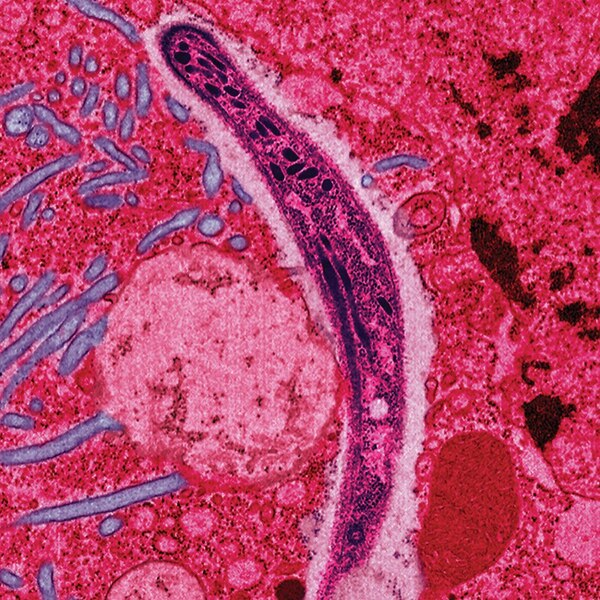Angelo Celli was an Italian physician, hygienist, parasitologist and philanthropist known for his pioneering work on the malarial parasite and control of malaria. He was Professor of Hygiene at the University of Palermo, and then at the Sapienza University of Rome. He founded the Pasteur Institute of Italy. With his wife Anna Fraentzel he established a number of medical schools in the Roman Campagna and dispensaries in Rome. He and Ettore Marchiafava correctly described the protozoan parasite that caused malaria and gave it the scientific name Plasmodium in 1885. Understanding the nature of malaria, he was among the first scientists to advocate and work for eradication of insects to prevent infectious diseases. He was elected to the Senate of the Kingdom of Italy in 1892.
Angelo Celli
Plasmodium is a genus of unicellular eukaryotes that are obligate parasites of vertebrates and insects. The life cycles of Plasmodium species involve development in a blood-feeding insect host which then injects parasites into a vertebrate host during a blood meal. Parasites grow within a vertebrate body tissue before entering the bloodstream to infect red blood cells. The ensuing destruction of host red blood cells can result in malaria. During this infection, some parasites are picked up by a blood-feeding insect, continuing the life cycle.
Plasmodium
Life cycle of a species that infects humans
Ring forms of Plasmodium inside human red blood cells (Giemsa stain)
Sporozoites, one of several different forms of the parasite, from a mosquito





